Search Images
Browse Content (p. 1250)
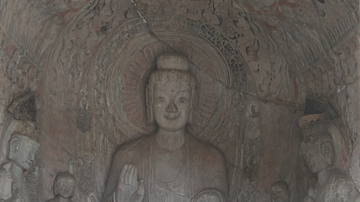
Image
Longmen Grottoes - Middle Binyang Cave
Early Northern Wei style grotto at Longmen Grottoes, Henan Province, China. c. 500 CE
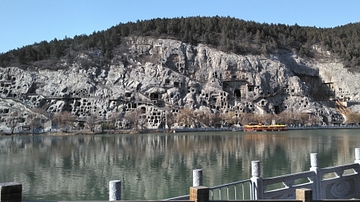
Image
Longmen Grottoes - Mount Longmen
Longmen Grottoes, Henan Province, China. Second half of 1st millennium CE
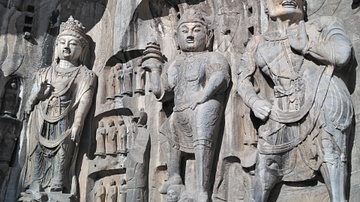
Image
Longmen Grottoes - Attendants at Fengxiansi Cave
The most magnificent Tang era grotto at the Longmen Grottoes, Henan Province, China. 675 CE.
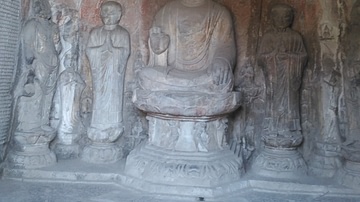
Image
Longmen Grottoes - Wanfo Cave
The Wanfo Cave, part of the Longmen Grottoes, containing 15,000 Buddha figures. 680 CE. Henan Province, China.
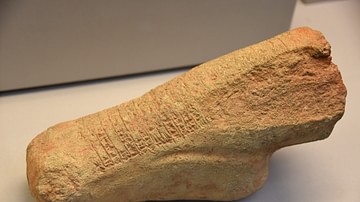
Image
Inscribed Part of a Mesopotamian Hound
The hindquarters of a terracotta statue of a sitting dog. The inscription mentions that it was dedicated to the goddess of healing, Gula, by an official, Ninurta-Resushu, for his king Nazi-Maruttash. The goddess Gula was usually shown with/represented...
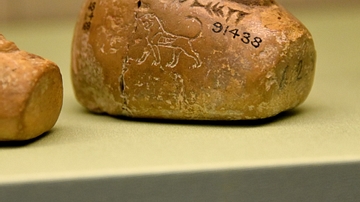
Image
Royal Duck-shaped Weight from Nimrud
The lion engraved on this duck-shaped weight shows that this is an official palace weight and therefore a royal property. Neo-Assyrian Period, 800-700 BCE. From the North-West Palace at Nimrud, Northern Mesopotamia, modern-day Iraq. (British...
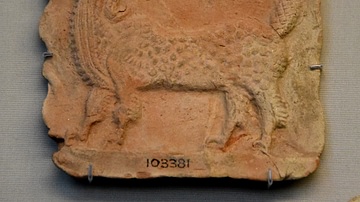
Image
Mushhushshu Plaque
This terracotta plaque was used to protect households from enemies. 800-500 BCE. From Southern Mesopotamia, modern-day Iraq. (British Museum, London)

Image
Glass Jar of Sargon II
This glass vessel was carved out of a solid block and the center was drilled out thereafter. Neo-Assyrian Period, reign of Sargon II, 721-705 BCE. From the North-West Palace at Nimrud, Northern Mesopotamia, modern-day Iraq. (British Museum...
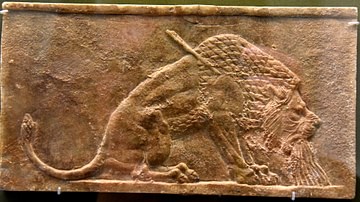
Image
Assyrian Dying Lion
Detail of a much larger gypsum wall relief showing the climax of a royal lion hunt. The lion is shown in his final death throes, blood pouring from his mouth. From the North Palace of Ashurbanipal II at Nineveh, Mesopotamia, modern-day Iraq...
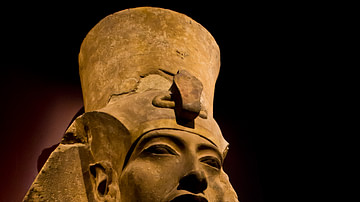
Image
Colossal Statue of Amenhotep IV
Colossal sandstone statue of Amenhotep IV, known as Akhenaten from the 5th year of his reign.
Karnak, Amarna Period, 18th Dynasty.